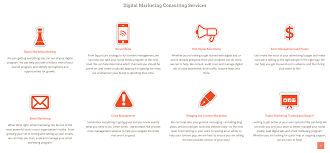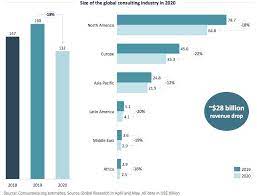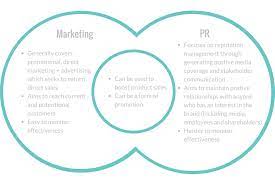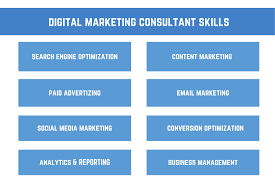Title: The Power of a Consultant for Online Presence: Unlocking Your Digital Potential
Introduction:
In today’s highly competitive digital landscape, having a strong online presence is vital for businesses to thrive. However, navigating the complexities of the online world can be overwhelming, especially for those without the necessary expertise. This is where a consultant for online presence can make all the difference. By leveraging their knowledge and experience, these professionals can help businesses unlock their digital potential and achieve meaningful results.
Understanding Your Business:
A skilled consultant begins by gaining a deep understanding of your business, its goals, and target audience. They analyze your current online presence, identifying strengths and areas that need improvement. This comprehensive assessment enables them to develop a tailored strategy that aligns with your unique needs.
Crafting an Effective Digital Strategy:
A consultant for online presence will work closely with you to create an effective digital strategy that encompasses various elements such as website design and development, search engine optimization (SEO), content creation, social media management, and online advertising. They will help you identify the most suitable platforms and channels to reach your target audience effectively.
Website Optimization:
Your website serves as the virtual storefront for your business. A consultant will focus on optimizing its design and functionality to enhance user experience and drive conversions. They ensure that your website is mobile-friendly, easy to navigate, visually appealing, and showcases your brand identity effectively.
Search Engine Optimization (SEO):
Appearing prominently in search engine results is crucial for driving organic traffic to your website. An experienced consultant understands the intricacies of SEO and employs strategies such as keyword research, on-page optimization, link building, and content marketing to improve your website’s visibility in search engines like Google.
Content Creation:
Compelling content is at the heart of any successful online presence. A consultant helps develop a content strategy that resonates with your target audience while aligning with your brand’s voice and values. They create engaging blog posts, articles, videos, and social media content that positions your business as a thought leader in your industry.
Social Media Management:
Social media platforms provide an excellent opportunity to connect with your audience and build brand awareness. A consultant will develop a social media strategy tailored to your business, selecting the most suitable platforms and crafting engaging content that encourages interaction and drives engagement.
Online Advertising:
Paid online advertising, such as Google Ads or social media ads, can significantly boost your online visibility. A consultant will help you navigate the complex world of online advertising, ensuring that your budget is allocated effectively to reach the right audience at the right time. They monitor campaigns closely, making data-driven adjustments for optimal results.
Monitoring and Analysis:
A consultant understands the importance of monitoring and analyzing data to measure the success of your online presence. They use various analytics tools to track key metrics such as website traffic, conversion rates, social media engagement, and more. Based on these insights, they make informed decisions to continuously optimize your digital strategy for maximum impact.
Conclusion:
In an increasingly digital world, a consultant for online presence plays a crucial role in helping businesses establish a strong digital footprint. Their expertise in website optimization, SEO techniques, content creation, social media management, and online advertising empowers businesses to navigate the complexities of the digital landscape effectively. By partnering with a skilled consultant for online presence, you can unlock your digital potential and propel your business towards success in the ever-evolving online realm.
7 Essential Tips for Building an Effective Online Presence as a Consultant
- Have a professional website that clearly outlines your services and expertise.
- Ensure your online presence is consistent across all social media channels.
- Use search engine optimization (SEO) to make sure potential clients can find you easily online.
- Create content that is relevant to the service you provide, such as blog posts, videos or webinars.
- Use analytics tools to measure the success of your online campaigns and adjust accordingly
- Monitor conversations about your services on social media platforms and respond quickly to any queries or complaints
- Network with other consultants in the same field to share ideas and collaborate on projects
Have a professional website that clearly outlines your services and expertise.
In today’s digital age, having a professional website is essential for businesses looking to establish a strong online presence. Your website serves as the virtual face of your brand, and it is often the first point of contact for potential customers. When seeking the guidance of a consultant for online presence, one valuable tip stands out: have a professional website that clearly outlines your services and expertise.
A well-designed website acts as a powerful marketing tool, conveying professionalism, credibility, and trustworthiness. It is crucial to create a visually appealing and user-friendly interface that reflects your brand identity effectively. Ensure that your website is responsive and optimized for mobile devices since an increasing number of users access the internet through smartphones and tablets.
When it comes to content, clarity is key. Clearly outline your services and expertise on your website to provide visitors with a comprehensive understanding of what you offer. Use concise yet informative language to highlight the value you bring to your clients. Include case studies or testimonials from satisfied customers to further build trust and demonstrate your capabilities.
Additionally, consider incorporating an “About Us” page that provides background information about your consultancy firm or yourself as an individual consultant. This helps potential clients understand your experience, qualifications, and the unique insights you can offer.
To enhance visibility in search engine results, incorporate relevant keywords throughout your website’s content. This will improve search engine optimization (SEO) and increase the likelihood of attracting organic traffic from potential clients searching for services like yours.
Remember that consistency in branding is crucial across all aspects of your online presence. Ensure that your logo, color scheme, typography, and overall design align with your brand identity consistently throughout the website.
Lastly, don’t forget to include clear contact information on every page of your website. Make it easy for visitors to get in touch with you by providing multiple channels such as email addresses or phone numbers. Including social media links can also encourage visitors to connect with you on other platforms.
By following this tip and having a professional website that clearly outlines your services and expertise, you will establish a strong online presence that attracts potential clients and sets you apart from competitors. Your website becomes a powerful tool for showcasing your capabilities, building trust, and ultimately driving business growth in the digital realm.
Consistency is key when it comes to establishing a strong online presence. In today’s digital age, businesses must maintain a cohesive and unified brand image across all social media channels. This is where a consultant for online presence can provide invaluable guidance.
When potential customers visit your social media profiles, they should instantly recognize your brand and feel a sense of familiarity. Consistency in branding helps build trust and credibility, which are essential for attracting and retaining customers.
A consultant for online presence understands the importance of maintaining consistent branding across all social media channels. They will work closely with you to develop a comprehensive strategy that ensures your brand identity remains consistent throughout your online presence.
Firstly, they will help you establish clear guidelines for visual elements such as logos, colours, fonts, and imagery. These guidelines will serve as the foundation for maintaining consistency across platforms. Whether it’s Facebook, Instagram, Twitter, or LinkedIn, your brand’s visual elements should be consistently represented to create a cohesive experience for your audience.
Furthermore, a consultant will assist in crafting compelling and consistent messaging across all social media channels. From taglines and captions to voice and tone, every piece of content should reflect your brand’s personality consistently. This ensures that no matter where customers encounter your brand on social media, they receive the same message and experience.
Consistency also extends to the frequency and timing of your posts. A consultant can help you develop an effective content calendar that ensures regular updates across all platforms while considering the unique characteristics of each channel. By maintaining a consistent posting schedule, you keep your audience engaged and build anticipation for future content.
Monitoring and managing interactions on social media is another crucial aspect of maintaining consistency. A consultant can help create guidelines for responding to comments or messages promptly while aligning with your brand’s tone of voice. Consistent engagement demonstrates professionalism and shows that you value your audience’s feedback.
In conclusion, ensuring consistency across all social media channels is vital for establishing a strong online presence. A consultant for online presence can guide you in developing a comprehensive strategy that maintains consistency in visual elements, messaging, posting frequency, and engagement. By presenting a unified brand image across platforms, you build trust, credibility, and recognition among your target audience. Embrace the power of consistency with the help of a consultant and watch your online presence flourish.
Use search engine optimization (SEO) to make sure potential clients can find you easily online.
In today’s digital age, having a strong online presence is essential for businesses to succeed. One powerful tool that can significantly enhance your visibility and attract potential clients is search engine optimization (SEO). By implementing effective SEO strategies, you can ensure that your business stands out in search engine results, making it easier for potential clients to find you online.
Search engines like Google are the go-to resource for individuals seeking products or services. When someone searches for a specific keyword or phrase related to your business, you want your website to appear at the top of the search results. This is where SEO comes into play.
SEO involves optimizing various aspects of your website and content to improve its visibility in search engine rankings. By incorporating relevant keywords and phrases throughout your website, meta tags, headings, and content, search engines will recognize the relevance of your website to specific queries.
Here are some key benefits of using SEO to make sure potential clients can find you easily online:
- Increased Visibility: Implementing SEO techniques ensures that your website appears higher in search engine rankings. The higher your ranking, the more visible and accessible your business becomes to potential clients searching for relevant keywords or phrases.
- Targeted Traffic: SEO helps attract targeted traffic to your website. By optimizing for specific keywords related to your industry or niche, you can attract potential clients who are actively searching for the products or services you offer.
- Credibility and Trust: Appearing at the top of search results instills a sense of credibility and trust among users. People tend to trust websites that rank higher in search engines as they perceive them as more authoritative and reliable.
- Cost-Effective Marketing: Compared to traditional advertising methods, SEO offers a cost-effective marketing strategy with long-term benefits. Once implemented correctly, SEO techniques continue working for you 24/7, driving organic traffic without ongoing advertising costs.
- Competitive Advantage: In today’s competitive marketplace, staying ahead of your competitors is crucial. By optimizing your website for SEO, you gain a competitive advantage by ensuring that potential clients find you before they find your competitors.
To make the most of SEO, it is advisable to seek the expertise of a consultant for online presence. These professionals have in-depth knowledge of SEO strategies and can help you implement the right techniques to improve your online visibility effectively.
In conclusion, search engine optimization (SEO) is a powerful tool that can significantly enhance your online presence and attract potential clients. By optimizing your website and content, you increase visibility in search engine rankings, drive targeted traffic, build credibility, and gain a competitive edge. Embrace the power of SEO with the help of a consultant for online presence, and watch as your business thrives in the digital realm.
Create content that is relevant to the service you provide, such as blog posts, videos or webinars.
Title: The Key to a Strong Online Presence: Creating Relevant Content
In today’s digital age, creating relevant and engaging content is essential for businesses looking to establish a strong online presence. A consultant for online presence understands the power of content and can guide you in crafting impactful blog posts, videos, or webinars that resonate with your target audience.
Relevance is the key to capturing the attention of your online visitors and potential customers. By creating content that aligns with the services you provide, you not only showcase your expertise but also establish yourself as a trusted authority in your industry. Here’s why creating relevant content is crucial for building an effective online presence:
Establishing Credibility:
When you consistently produce valuable content related to your services, it demonstrates your knowledge and expertise. This builds trust among your audience, positioning you as a reliable source of information. By addressing common pain points or providing solutions through your content, you establish credibility and become the go-to resource for potential customers.
Attracting Targeted Traffic:
Creating relevant content helps attract the right audience to your website or social media channels. By focusing on topics that are directly related to the services you provide, you increase the chances of attracting individuals who are actively seeking information or solutions in your industry. This targeted traffic has a higher likelihood of converting into leads or customers.
Enhancing Search Engine Visibility:
Search engines like Google prioritize websites that consistently produce high-quality, relevant content. By incorporating relevant keywords into your blog posts, videos, or webinars, you improve your search engine optimization (SEO) efforts and increase the visibility of your website in search results. This drives organic traffic and boosts your online presence.
Engaging Your Audience:
Relevant content has the power to engage and captivate your audience. When you create blog posts that answer frequently asked questions or produce videos that demonstrate how to use your products/services effectively, you provide value to your audience. Engaging content encourages interaction, comments, and shares, which in turn expands your reach and strengthens your online community.
Showcasing Thought Leadership:
By creating relevant content, you position yourself as a thought leader in your industry. When you share insights, trends, or innovative ideas through blog posts, videos, or webinars, you demonstrate that you are up-to-date with the latest developments in your field. This not only helps to build trust but also attracts attention from industry peers and potential collaborators.
In conclusion, creating relevant content is a fundamental aspect of building a strong online presence. A consultant for online presence can assist you in developing a content strategy that aligns with the services you provide. By consistently producing valuable and engaging blog posts, videos, or webinars related to your industry, you establish credibility, attract targeted traffic, enhance search engine visibility, engage your audience and showcase thought leadership. Embrace the power of relevant content and unlock the full potential of your online presence today!
Title: Harnessing the Power of Analytics: Measuring and Adjusting Online Campaign Success
In today’s digital age, businesses invest significant resources in online campaigns to boost their online presence and drive success. However, launching campaigns without measuring their effectiveness is like sailing without a compass. To ensure maximum impact and return on investment, it is crucial to use analytics tools to measure the success of your online campaigns and make data-driven adjustments accordingly.
Analytics tools provide valuable insights into the performance of your online campaigns by tracking various metrics such as website traffic, conversion rates, click-through rates (CTRs), engagement levels, and more. These metrics offer a comprehensive understanding of how your campaign is resonating with your target audience and whether it is achieving its intended objectives.
Measuring Campaign Success:
By using analytics tools, you can gauge the success of your online campaigns accurately. For example, website traffic metrics reveal how many visitors are coming to your site via the campaign’s channels. Conversion rates indicate how effectively your campaign is turning visitors into customers or achieving desired actions such as sign-ups or purchases. CTRs measure the percentage of users who click on an ad or call-to-action within your campaign.
Adjusting for Maximum Impact:
Once you have gathered data from analytics tools, it’s time to make informed adjustments to optimize your online campaigns further. Here are some key areas where adjustments can be made:
- Targeting: Analyzing demographic data allows you to refine your target audience further. By understanding which segments are responding positively to your campaign, you can tailor future efforts accordingly.
- Messaging: Reviewing engagement metrics helps identify which messages resonate best with your audience. Adjusting content or calls-to-action based on these insights can significantly improve campaign performance.
- Platforms: Analytics tools provide valuable information about which platforms are generating the most traffic or conversions for your campaign. Focusing efforts on these platforms while adjusting or eliminating underperforming ones can maximize your campaign’s impact.
- Timing: Analyzing data on time of day or day of the week can help identify when your target audience is most active or responsive. By adjusting campaign schedules to align with these patterns, you can increase engagement and conversions.
- Budget Allocation: Analytics tools also provide data on the cost-effectiveness of different aspects of your campaign. By reallocating budget towards high-performing areas and reducing spend on low-performing elements, you can optimize your resources for maximum impact.
Conclusion:
Using analytics tools to measure the success of your online campaigns is essential for achieving optimal results in today’s digital landscape. By analyzing metrics and making data-driven adjustments, you can refine targeting, messaging, platforms, timing, and budget allocation to enhance campaign performance. Embracing the power of analytics allows businesses to continuously optimize their online presence and drive success in a competitive digital world. So, leverage the insights provided by analytics tools and navigate your online campaigns towards greater effectiveness and growth.
In today’s digital age, social media platforms have become a powerful tool for businesses to connect with their audience and build a strong online presence. One valuable tip when working with a consultant for online presence is to actively monitor conversations about your services on social media and respond promptly to any queries or complaints.
Social media platforms provide an open forum for people to express their opinions, share experiences, and seek recommendations. By keeping a close eye on these conversations, you gain valuable insights into how your target audience perceives your brand and the services you offer. It allows you to identify areas of improvement, address concerns, and provide exceptional customer service.
When working with a consultant for online presence, they will help you set up monitoring tools that track mentions of your business across various social media platforms. By leveraging these tools, you can stay informed about what people are saying about your services in real-time.
Responding quickly to queries or complaints is crucial in maintaining a positive brand image. When customers reach out on social media with questions or concerns, they expect timely responses. Ignoring or delaying responses can lead to frustration and negative sentiment towards your brand.
Your consultant will work closely with you to establish clear guidelines and protocols for responding to social media interactions. They will help craft appropriate and empathetic responses that address concerns effectively while showcasing your commitment to customer satisfaction.
By actively engaging with your audience on social media platforms, you demonstrate transparency and build trust. Promptly addressing queries shows that you value customer feedback and are dedicated to providing excellent service. It also provides an opportunity to turn dissatisfied customers into loyal advocates by resolving their issues in a timely manner.
Furthermore, monitoring conversations on social media platforms allows you to proactively identify potential issues before they escalate. By addressing complaints swiftly, you can prevent negative reviews from spreading further and mitigate any potential damage to your reputation.
In conclusion, monitoring conversations about your services on social media platforms is an essential aspect of managing your online presence. By partnering with a consultant for online presence, you can establish effective monitoring systems and protocols to ensure timely responses to queries or complaints. This proactive approach not only enhances customer satisfaction but also helps maintain a positive brand image in the digital realm.
Network with other consultants in the same field to share ideas and collaborate on projects
Title: The Power of Collaboration: Networking with Consultants in the Same Field for Online Presence Success
In the fast-paced world of online presence, staying ahead of the curve is essential. One powerful tip to enhance your digital strategy is to network with other consultants in the same field. By fostering connections and collaborating with like-minded professionals, you can tap into a wealth of knowledge, share ideas, and unlock new opportunities for success.
Expanding Your Knowledge Pool:
Networking with fellow consultants provides an invaluable opportunity to expand your knowledge pool. Each consultant brings their unique experiences, perspectives, and expertise to the table. Engaging in meaningful conversations and sharing insights can spark fresh ideas and inspire innovative approaches to online presence strategies. By tapping into this collective wisdom, you can gain a deeper understanding of industry trends and best practices.
Collaborative Projects:
Collaboration is a catalyst for growth and innovation. By partnering with other consultants in your field, you can embark on collaborative projects that push boundaries and yield exceptional results. Whether it’s co-creating content, conducting joint webinars or workshops, or even launching joint marketing campaigns, collaboration amplifies your reach and strengthens your online presence. Together, you can leverage each other’s strengths to deliver comprehensive solutions that benefit both parties involved.
Sharing Resources:
Networking with fellow consultants opens up a world of shared resources. From tools and software recommendations to case studies and industry reports, collaborating allows you to access valuable resources that may have otherwise remained undiscovered. This shared knowledge empowers you to optimize your strategies more effectively while saving time and effort in researching on your own.
Supportive Community:
The journey towards establishing a strong online presence can be challenging at times. Networking with other consultants creates a supportive community where you can find encouragement, advice, and guidance when facing obstacles or seeking inspiration. Sharing experiences within this community fosters professional growth while providing a platform for mutual support.
Building Referral Networks:
Networking not only enhances your knowledge and collaborative opportunities but also opens doors to potential referrals. By establishing strong connections with other consultants, you create a network of trusted professionals who can refer clients to you, and vice versa. This referral network can significantly expand your client base and contribute to the growth of your online presence consultancy.
Continuous Learning:
Networking keeps you at the forefront of industry developments. Engaging in conversations and attending industry events or webinars allows you to stay updated on emerging trends, technologies, and strategies. This continuous learning ensures that your online presence consultancy remains relevant and competitive in an ever-evolving digital landscape.
In conclusion, networking with consultants in the same field is a powerful tip for enhancing your online presence consultancy. By collaborating, sharing ideas, resources, and experiences, you can tap into a vast knowledge pool while expanding your professional network. This synergy not only strengthens your digital strategies but also fosters personal growth within a supportive community. Embrace the power of collaboration and unlock new possibilities for success in the dynamic world of online presence consultancy.










